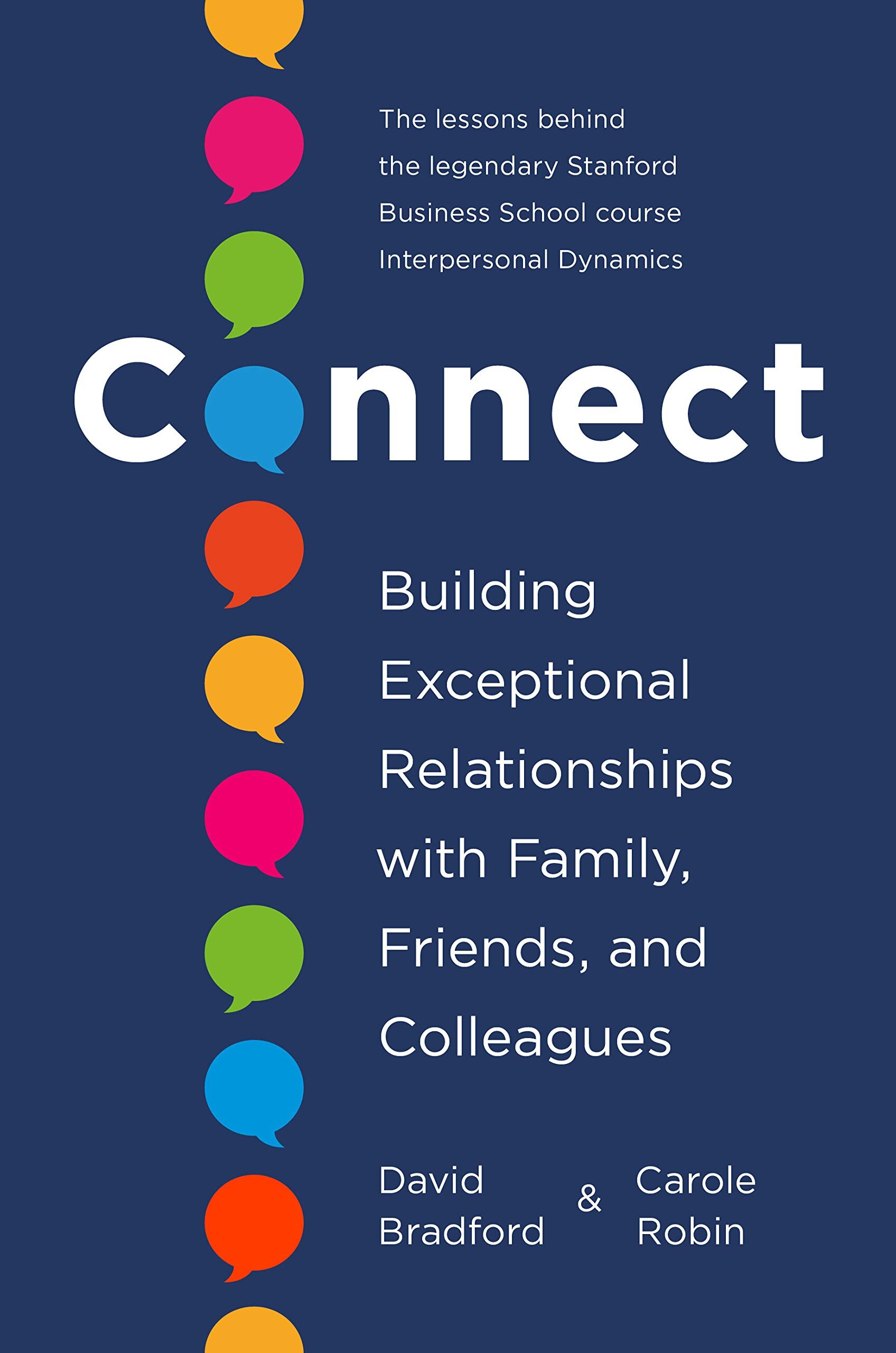Connect by David Bradford & Carole Robin
3.27 / 5
Some spelling errors in my copy, but other than that, the book is about the six pillars of having an "exceptional" relationship. Exceptional is of course a subjective term, and is used — often synonymously — with "fulfilling." While I may not agree with that, the pillars are certainly interesting.
- be authentic
- both people can be vulnerable
- proceeding with the understanding that self disclosures won't be used against you.
- having the ability to be honest with each other. this includes the range of emotions and constructive feedback of behaviours.
- Dealing with conflict productively using the four step process listed:
- have the other person take the issue seriously.
- share what's going on with them.
- come to a mutually satisfying solution.
- decide what repair work must be done.
- commit each other's growth and development.
A criticism of this work, and one that doesn't really get talked about, is forced interactions. Some people are forced to work with sociopathic, narcissistic, or toxic people and they have no choice. When dealing with these human stains, none of the steps work, and of course that's not what the book is about, it's about "exceptional" relationships with friends, co-workers, and families; nevertheless, the conflict management, and steps to build a relationship will not work on these people. People who thrive on conflict and drama would enjoy nothing more than seeing your vulnerability, and will use that information as a weapon.
Other than that, this is nothing that hasn't been said before. It tries to be Carnegie's "How to Win Friends & Influence People" but with a more dry style.



